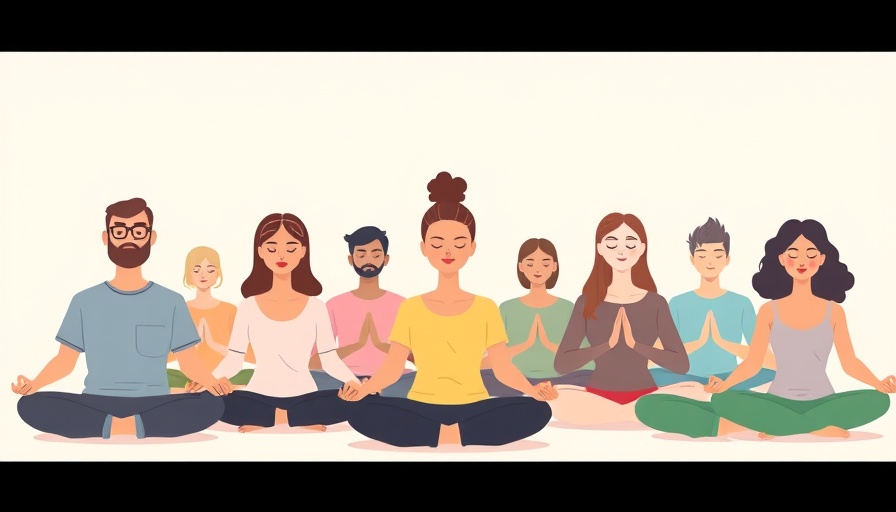
Understanding Mindfulness: A Path to Well-Being
In an age where stress and anxiety have become commonplace, the concept of mindfulness emerges as a crucial strategy for enhancing mental health. At its core, mindfulness is the innate human ability to be fully present in the moment. It invites us to engage with our surroundings and our thoughts without getting overwhelmed or excessively reactive. This means we are not just aware of our feelings and surroundings, but we cultivate a space within us where we can respond thoughtfully rather than react impulsively.
The Power of Presence: Why Mindfulness Matters
Mindfulness practice offers multiple benefits, particularly for those grappling with mental health challenges such as anxiety disorders or depression. Research has shown that cultivating a mindful approach can reduce stress, enhance cognitive performance, and foster a deeper sense of compassion towards oneself and others. When practiced regularly, it has shown to alleviate symptoms of panic attacks and generalized anxiety disorder (GAD) by encouraging individuals to tolerate distressing thoughts with self-awareness and acceptance.
Implementation: How to Integrate Mindfulness into Daily Life
Integrating mindfulness doesn’t always mean setting aside hours to meditate. Instead, it can be seamlessly woven into daily routines. Simple practices, like taking a few conscious breaths before responding to a stressful situation or paying close attention to your posture while walking, can make a significant difference. This practice of inserting 'pauses' into daily life is invaluable, especially for caregivers and professionals who often deal with high-pressure environments.
Mindfulness Techniques: From Meditation to Movement
There are diverse ways to practice mindfulness that cater to various preferences:
- Seated Meditation: Sitting comfortably, focusing on breath, and permitting thoughts to drift in and out without attachment.
- Movement Practices: Integrating mindfulness with activities like yoga or tai chi, where the mind consciously embodies movement and breath together.
- Walking Meditation: Paying attention to the sensations of walking—each step, the ground beneath your feet, and your rhythmic breath.
These practices can cultivate resilience against stressors, directly addressing issues like workplace anxiety and student mental health challenges.
Increasing Awareness: Gathering Support and Resources
For individuals struggling with mental health, community resources are vital. Support groups can foster social connection, helping to alleviate feelings of isolation. Organizations like SADAG provide a helpline for those facing anxiety disorders, offering guidance and support tailored to unique needs. Furthermore, online resources, including mindfulness apps and digital therapy options, further empower individuals on their journey to mental well-being.
Coping Strategies: Managing Anxiety through Mindfulness
You don't always have to face anxiety alone. . Coping strategies that incorporate mindfulness are effective in minimizing anxiety symptoms:
- Breathing Exercises: Simple yet effective breathing techniques can calm the nervous system and remind one to be present.
- Art and Music Therapy: Engaging in creative expression can counter resilience against anxiety while enhancing mood.
- Nature Therapy: Spending time in natural surroundings has shown to boost mental health, making mindfulness more intuitive and accessible.
Building mindfulness into one's lifestyle ultimately enhances resilience by providing effective tools for managing mental health challenges.
Conclusion: Embracing Mindfulness for Everyone
Mindfulness is not solely reserved for those in meditative spaces; it is for everyone, especially those facing the challenges of mental health during stressful times such as the COVID-19 pandemic or economic downturns. By engaging in mindfulness, whether through formal meditation or simple daily practices, we can reclaim our focus and cultivate compassion. This practice allows communities to address systemic challenges and promote mental health awareness effectively.
Take the first step towards embracing mindfulness in your life! Explore mindfulness practices, connect with support groups, and utilize available resources to enhance your journey to mental wellness.
 Add Row
Add Row  Add
Add 




Write A Comment